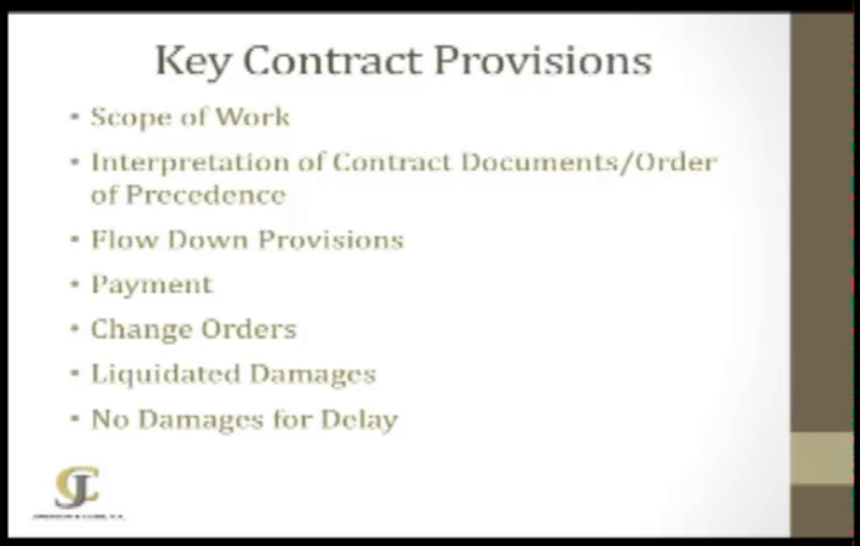The construction industry has rebounded following the recession of 2008. Therefore, there is a greater demand for builders and their work than we’ve seen in years. Having a clear, thorough, binding construction contract helps to ensure that both the contractor and the client know what to expect. It also helps resolve any issues that may come up, ahead of time. In this video presentation recorded by Charles B. Jimerson, he explains many of the considerations needed by certified contractors and sub-contractors in Florida to understand a construction contract.
To access the presentation, visit YouTube or click play on the embedded image below. The length of the presentation is 1:19:57.
Construction Contract Overview
Some contractors do not realize that construction contracts can take many forms. Therefore, keep in mind they can include a written contract, oral contract and quasi contract. As a result, use of a standard form can be helpful. The most common written versions are AIA forms, which incorporate differing payment/execution considerations:
- Lump sum: AIA A101-2007
- Cost plus with a guaranteed maximum price: AIA A102-2007
- General conditions: AIA A201-2007
For any project, it is important to understand the scope of work for the project and what costs are defined because that can help determine the best type of written contract. Also, in addition to the contract, there are often other legal documents attached to an agreement:
- Addendums
- Credit applications
- Design fee information
Construction Phase Types
In addition to understanding types of contracts, there are two main approaches to the actual construction of a project:
- Design-Bid-Build (most used delivery method)
- Design-Build (more liability for the contractor)
Key Contract Provisions
After the form and phase type has been determined, the key provisions in the contract should be defined. In the presentation, Charlie details the following:
- Scope of work
- Interpretation of contract documents and order of precedence
- Flow down provisions
- Payment
- Change orders
- Liquidated damages
- No damages for delay
- Indemnification
- Additionally named insured
- Notice
- Dispute resolution
- Attorneys’ fees
Enforceability of these key contract provisions varies by state. Therefore, it is important for certified contractors and sub-contractors to understand any risks involved in a particular condition. Charlie goes into detail on each item to help explain clauses such as progress payments, “pay when paid”, “pay if paid”, change orders.

